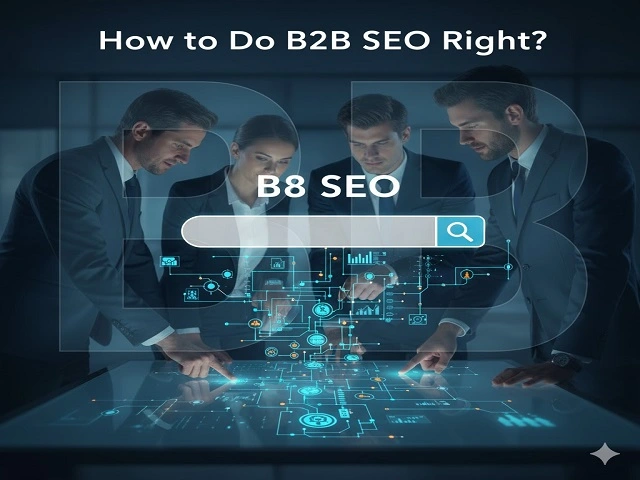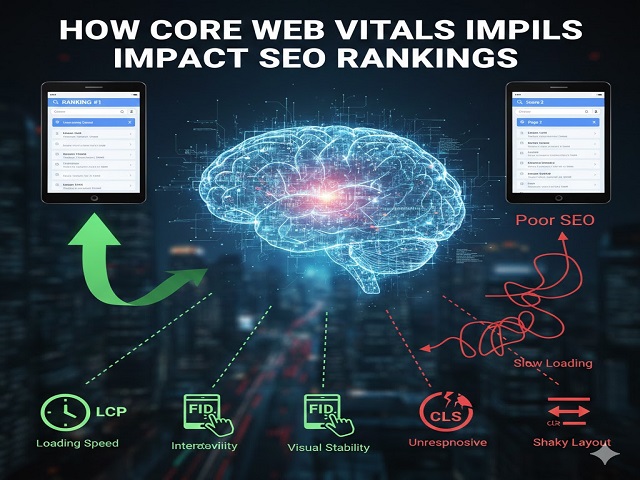~ A well-executed B2B SEO strategy helps businesses attract the right decision-makers, build credibility, and generate qualified leads through optimized content and website performance. By focusing on intent-driven keywords, technical excellence, and consistent optimization, companies can achieve long-term growth and industry authority.
Visibility is everything in the digital-first marketplace. For businesses operating in the B2B space, the ability to connect with decision-makers through search engines can determine whether you become an industry leader or remain unnoticed. Unlike traditional marketing methods, a strong SEO strategy enables you to attract high-quality leads, build long-term authority, and position your brand in front of the right audience. But B2B search engine optimization isn’t identical to B2C—it requires deeper understanding of buyer intent, longer sales cycles, and a more targeted content approach. Getting it right means creating a system that consistently brings your ideal clients closer to conversion.
Understanding B2B SEO
At its core, B2B SEO refers to optimizing your digital presence so that other businesses can find you easily through search engines. Unlike B2C SEO, which leans on broad terms and emotional connections, SEO for B2B is grounded in rational decision-making, in-depth research, and solutions for niche industry needs. It’s not about driving the maximum number of clicks; it’s about attracting the right people—professionals, executives, and companies that are actively seeking solutions you provide.
This is where website SEO plays a crucial role. A well-optimized site ensures that when decision-makers search for solutions, your business shows up as a credible and trustworthy option. Technical optimization, high-value content, and thoughtful keyword targeting form the backbone of this approach.
Why SEO for B2B is Different from B2C
Before jumping into tactics, it’s important to understand the unique challenges in this space:
- Longer Sales Cycles – Unlike quick consumer purchases, B2B buying involves multiple stakeholders, extensive research, and several stages of approval. Your SEO content must support prospects through every step.
- Smaller, Highly Targeted Audience – Instead of millions of general consumers, your potential audience may be a small but highly valuable niche. This demands precision in keyword selection and content creation.
- Expert-Led Decisions – B2B buyers are informed professionals. They expect data-driven insights, whitepapers, and case studies, not just marketing fluff.
- Trust and Authority Matter More – Establishing thought leadership is critical, since businesses want to partner with experts, not just vendors.
Building the Right SEO Strategy for B2B
Creating an effective SEO strategy for B2B businesses requires a mix of technical expertise, industry knowledge, and consistent execution. Let’s break down the essential steps:
1. Deep Audience Research
Know your buyers inside out. Define buyer personas that include not just their job titles but also their pain points, motivations, and decision-making process. This insight will guide your keyword research and content focus.
2. Keyword Optimization with Intent in Mind
Keyword tools still play a role, yet in B2B SEO, success depends far more on capturing user intent. Focus on queries that reflect problem-solving and decision-making, such as “best software for supply chain management” or “enterprise-level data security solutions.” These are the kinds of searches your prospects are making.
3. Create High-Value Content
For B2B SEO, content forms the foundation. Resources like blogs, case studies, whitepapers, webinars, and research reports help build authority when crafted with purpose. Every piece should align with a stage in the buyer’s journey, whether it’s awareness, consideration, or decision-making.
4. On-Page and Technical Excellence
Strong website SEO means optimizing elements like title tags, meta descriptions, internal linking, and mobile responsiveness. But B2B companies must also focus on speed, user experience, and schema markup to ensure search engines—and users—can trust the site’s quality.
5. Link Building and Authority Development
Earning backlinks from respected industry publications or partners boosts credibility. Quality trumps quantity here; one link from a reputed trade publication can outweigh dozens from irrelevant sites.
6. Consistent Tracking and Optimization
Use analytics tools to track which keywords, pages, and campaigns bring in the most qualified leads. SEO isn’t a one-time project; it’s a continuous process of testing, learning, and refining.
Common Mistakes in B2B SEO
Even with the best intentions, many businesses fall into traps that limit their results. Some frequent mistakes include:
- Over-prioritizing traffic over relevance: Not all clicks translate to revenue.
- Ignoring technical SEO: A slow, poorly structured site loses authority quickly.
- Publishing surface-level content: Without depth, businesses won’t see you as a trusted resource.
- Neglecting analytics: Without measurement, it’s impossible to know what’s working.
Avoiding these pitfalls ensures that your SEO strategy stays aligned with business growth.
The Role of Agencies and Companies in B2B SEO
Many organizations choose to partner with a B2B SEO agency or a B2B SEO company to streamline the process. These partners bring industry-specific expertise, access to advanced tools, and proven frameworks that help accelerate results. From keyword research to technical audits and ongoing optimization, agencies often act as an extension of the internal marketing team, freeing businesses to focus on their core operations.
Future Trends in SEO for B2B
The digital landscape continues to evolve, and keeping ahead of trends is crucial. Some shifts to watch include:
- AI-driven search and personalization – Search engines are getting smarter, prioritizing context and user behavior over simple keywords.
- Voice search and conversational queries – As professionals increasingly use voice-enabled devices, B2B companies must adapt their content to natural language.
- Content experience optimization – Beyond text, multimedia like videos, infographics, and interactive tools are becoming essential.
- Data privacy and trust signals – Buyers want assurance that their information is safe, making secure websites and transparent practices more important than ever.
Conclusion
Doing B2B SEO right isn’t just about ranking higher—it’s about building sustainable visibility, credibility, and trust in a competitive market. With a clear SEO strategy, optimized website SEO, and a commitment to creating meaningful content, businesses can consistently attract the right clients and position themselves as industry leaders. The process requires patience, precision, and persistence, but the long-term rewards are worth the effort. By aligning your SEO with the unique dynamics of B2B sales, you can unlock growth opportunities that go far beyond clicks and impressions.




